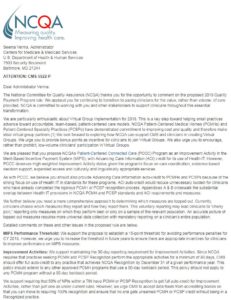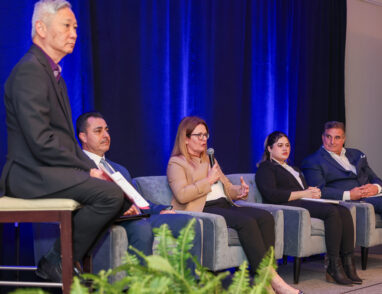Help Us, Help You: Our Strategy to Reduce Burden in MACRA
August 7, 2017 · NCQA Communications
NCQA works hard to address clinicians’ concerns about the burden of quality reporting across multiple payers. And we could use your help.
Today, Medicaid and commercial plans each have their own reporting requirements. Medicare Advantage plans also have their own requirements. Then there’s Medicare Part B, which requires clinicians to report on four different categories for the Merit-Based Incentive Payment System (MIPS) in MACRA.
It takes a lot to succeed in all four categories of MIPS. And as many of you know, NCQA-Recognized PCMH and PCSP practices receive auto-credit in one of them: Improvement Activities. That means our recognized clinicians don’t have to do any extra work to get full credit in that category.
But what if our recognized clinicians could get auto-credit for another category, as well? That’s what NCQA strives to accomplish.
Our ACI Ask
Our policy staff created a crosswalk to identify the overlap between our recognition programs and Advancing Care Information (ACI). (The ACI category measures how clinicians use health information technology (HIT) to improve patient care- formerly known as Meaningful Use.) It turns out our program standards address almost every concept that’s measured in ACI! That means NCQA-recognized clinicians are already performing the activities required to succeed in this category. So, why not give auto-credit?
We don’t think clinicians should have to do the same work twice. That’s why we asked CMS to offer clinicians in PCMHs and PCSPs some type of auto-credit for ACI in addition to the auto-credit they receive for Improvement Activities. This would be a truly meaningful way to reduce burden on clinicians who want to participate in MIPS and begin the transition to value-based payment.
Why Not?
There is some precedent for this. In the 2018 proposed rule, CMS proposed to offer Patient-Centered Connected Care-recognized clinicians some bonus points for ACI. However, given that PCMH and PCSP have significantly more rigorous requirements around the use of HIT, we believe clinicians in those recognized practices deserve credit for the work they’ve done.
How Can You Help?
We’ve asked CMS to help our clinicians, but we need more voices to be heard. You, your professional association, your practice management group, or any other stakeholder can write to CMS to share your support.
We posted our letter to CMS on the NCQA Web site. You can use our language or craft your own, but CMS needs to hear from you!









